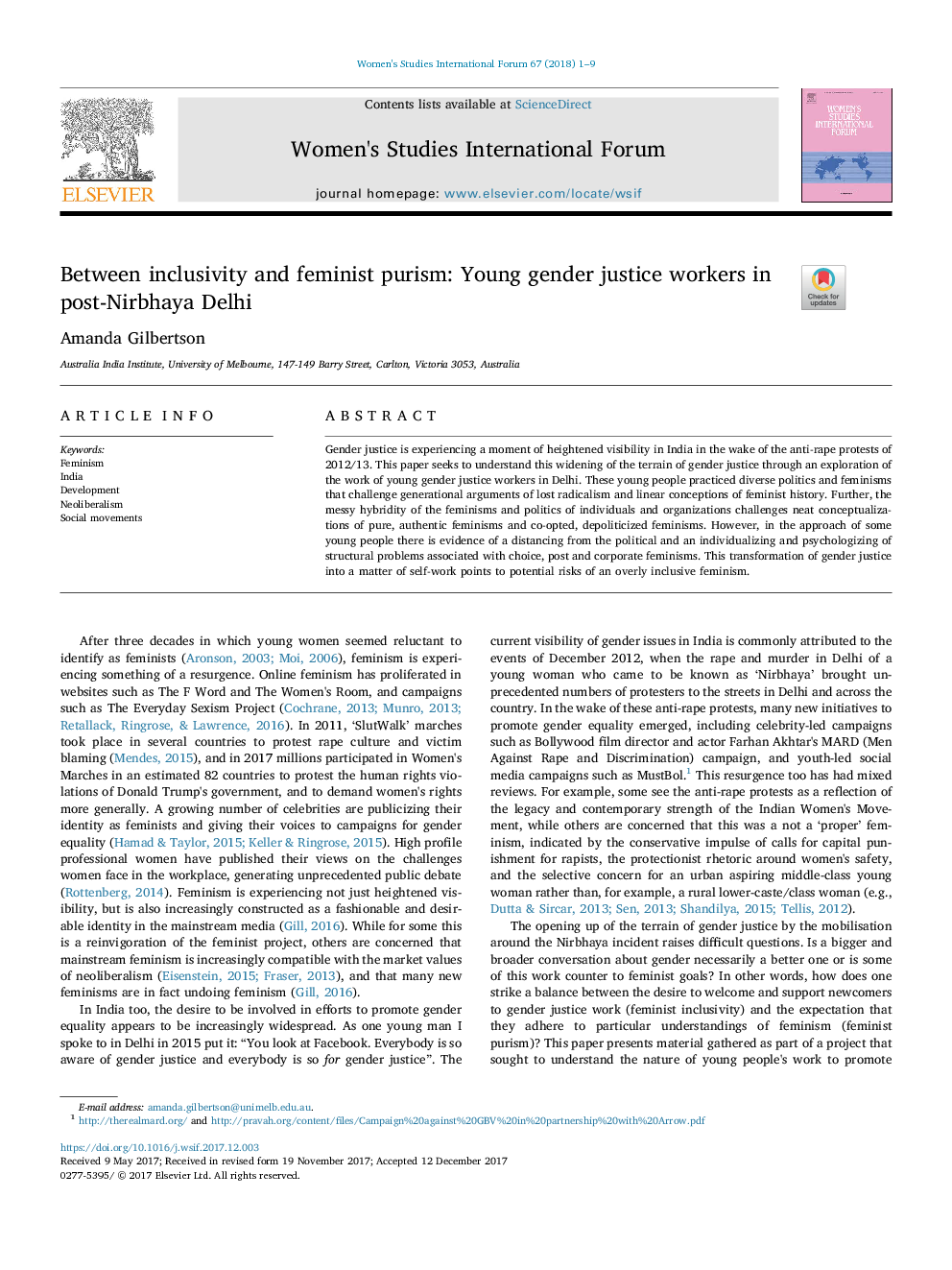ترجمه فارسی عنوان مقاله
بین فتنه انگیز و فریب فمینیستی: کارگران جوان عدالت جنایی در پست بعد از نیرفایا دهلی
عنوان انگلیسی
Between inclusivity and feminist purism: Young gender justice workers in post-Nirbhaya Delhi
| کد مقاله | سال انتشار | تعداد صفحات مقاله انگلیسی |
|---|---|---|
| 130201 | 2018 | 9 صفحه PDF |
منبع

Publisher : Elsevier - Science Direct (الزویر - ساینس دایرکت)
Journal : Women's Studies International Forum, Volume 67, MarchâApril 2018, Pages 1-9
ترجمه کلمات کلیدی
فمینیسم، هند، توسعه، نئولیبرالیسم، جنبش های اجتماعی،
کلمات کلیدی انگلیسی
Feminism; India; Development; Neoliberalism; Social movements;
ترجمه چکیده
عدالت جنایی پس از اعتراضات ضد تجاوز در سال 2012/13، یک لحظه از دیدگاه شدید در هند را تجربه می کند. این مقاله به دنبال درک این گسترش عدالت جنسیتی از طریق کشف کار کارگران جوان عدالت جنایی در دهلی است. این جوانان سیاست های متنوع و فمینیسم را تمرین می کردند که استدلال های نسلی رادیکالیسم گمشده و مفهوم خطی تاریخ فمینیست را به چالش می کشیدند. علاوه بر این، همبستگی کثیف فمینیسم و سیاست افراد و سازمان ها، مفهوم سازی شگرفی از فمینیسم های خالص، معتبر و فمینیسم را با هم مقابله می کند. با این حال، در رویکرد برخی از جوانان، شواهدی وجود دارد که نشان می دهد تفاوت های سیاسی و فردی و روانشناختی مشکلات ساختاری مربوط به فمینیسم انتخاب، پست و شرکتی وجود دارد. این تحول عدالت جنسیتی به موضوع کار خودکامه اشاره به خطرات احتمالی فمینیسم بیش از حد فراگیر دارد.

